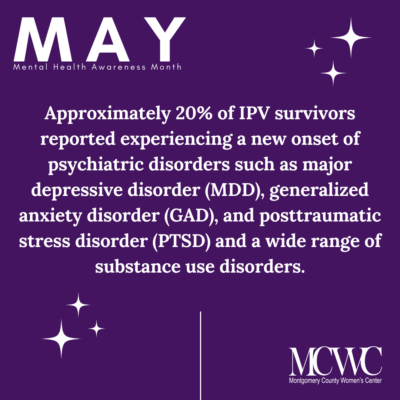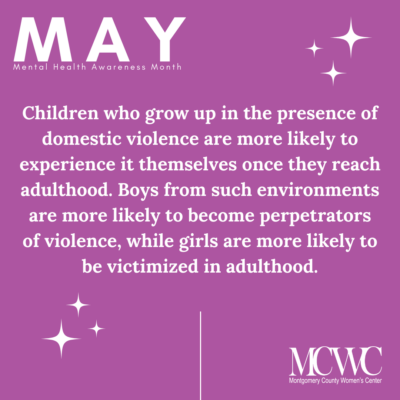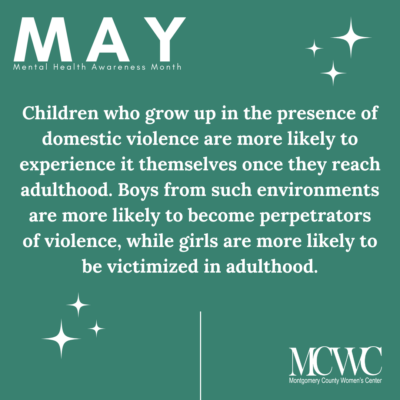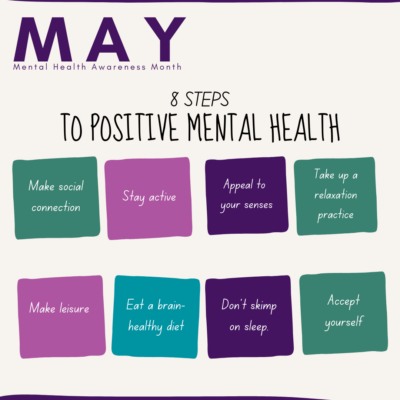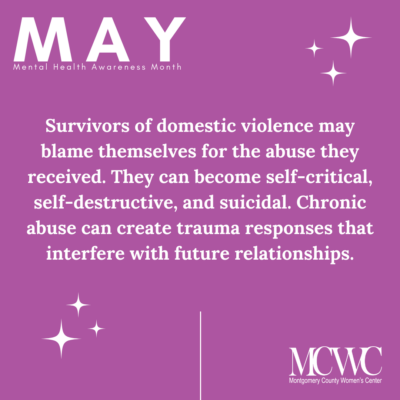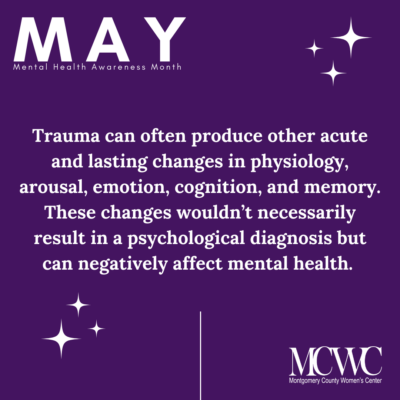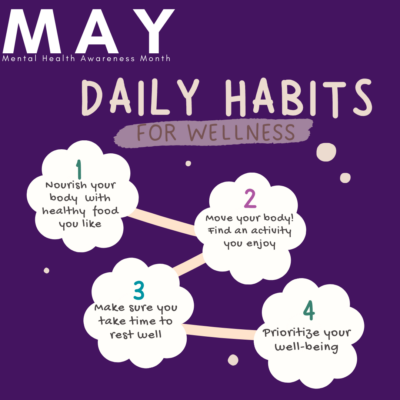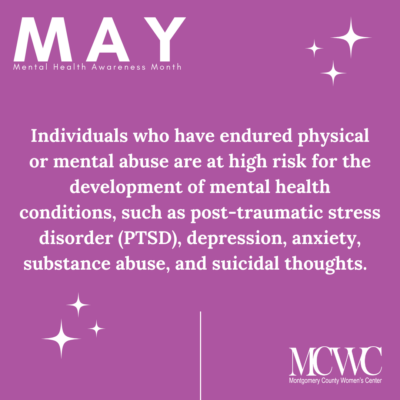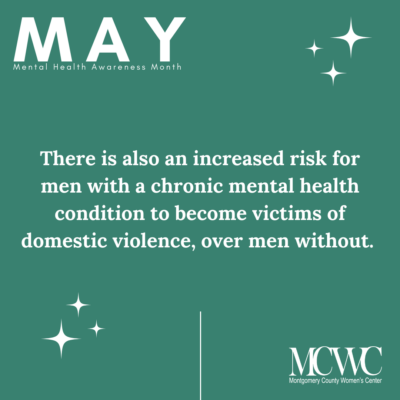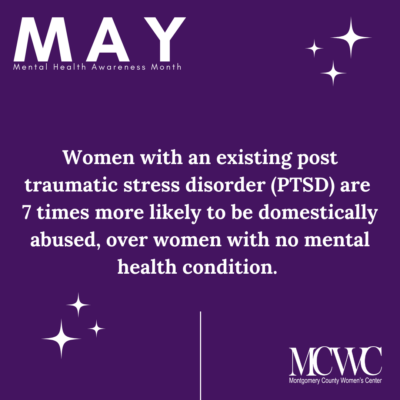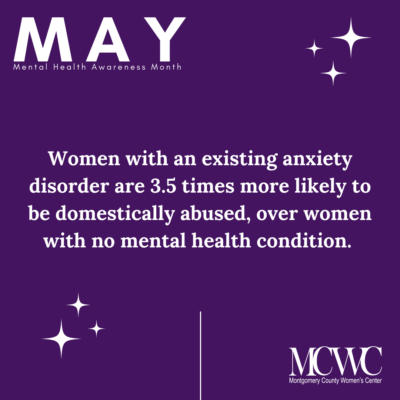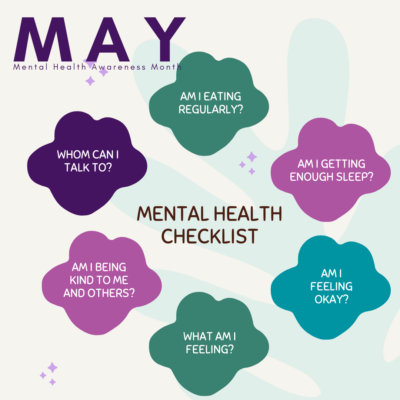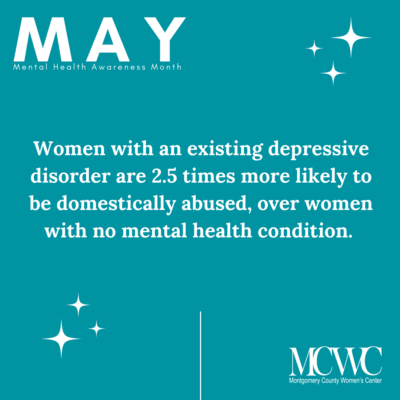May is Mental Health Awareness Month. All month we will be exploring The Relationship Between Domestic Violence and Mental Health.
Domestic violence is a serious problem in the United States, affecting nearly 10 million people each year. It is estimated that one in four women and one in nine men are victims of domestic violence. Domestic and family violence encompasses child abuse, intimate partner violence and elder abuse. The effects of domestic violence have far-reaching implications, not only for the victim, but also for their family, friends or other loved ones who may be exposed or aware of the abuse. Abuse can affect the way we feel about ourselves, the way we take care for ourselves, and how we interact with others. Beyond that, domestic violence can also have a profound impact on our mental health and sometimes lead to serious and/or chronic mental health conditions. The relationship between domestic violence and mental health is closely intertwined – cyclical, even. You see, persons with an existing mental health disorder are far more likely to find themselves the victim of domestic abuse than those without. In turn, domestic violence victims without a prior mental health condition have a high risk for developing one.

